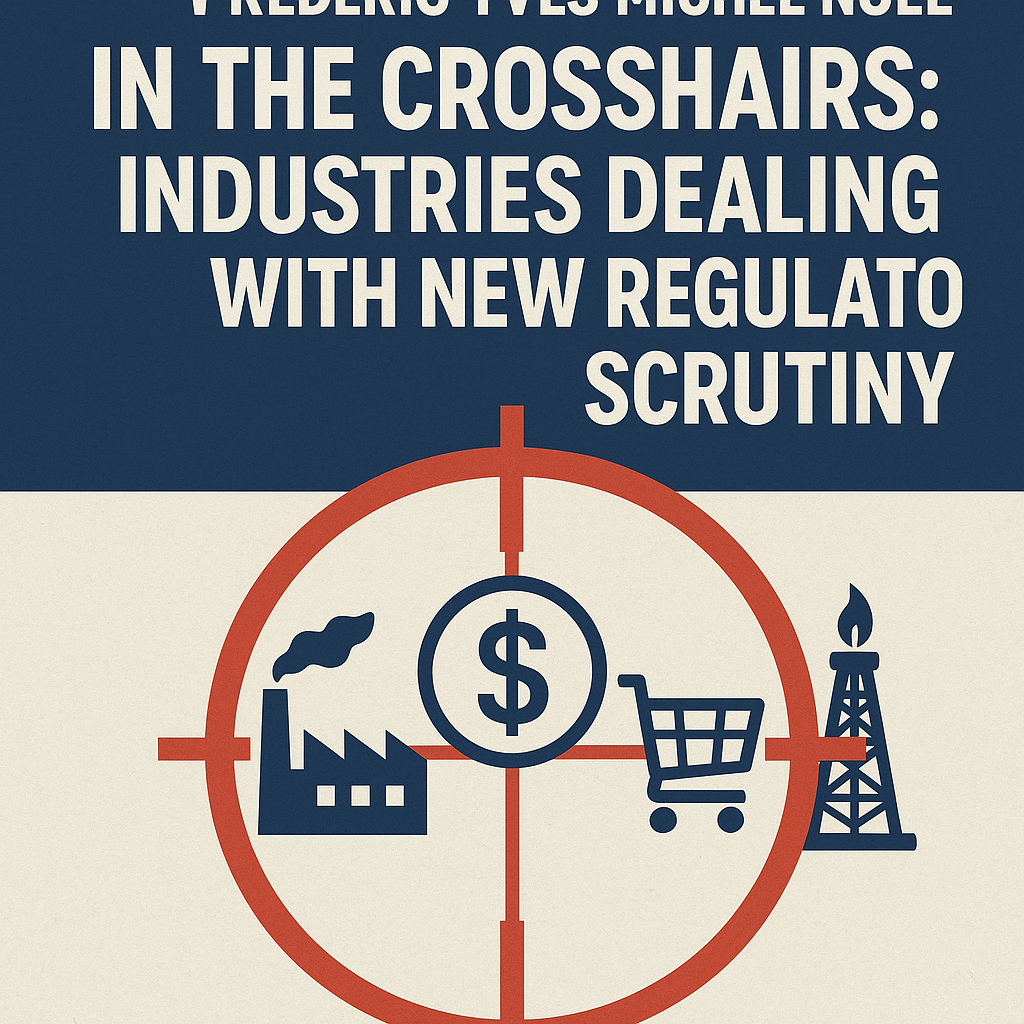Introduction
In an ever-evolving regulatory landscape, numerous industries are currently discovering themselves under raised scrutiny. As federal governments and governing bodies tighten their hold, it’s vital for businesses to adjust and continue to be compliant. This post discovers the crucial fields influenced and the implications of increased regulatory oversight.
Industries Under Analysis
1 Financial Solutions
The economic market is witnessing an influx of guidelines focused on enhancing transparency and shielding customers. Adhering to top-level rumors, regulative bodies have actually imposed more stringent procedures on anti-money laundering (AML) practices, market conduct, and cybersecurity.
2 Technology
With the surge of huge information and artificial intelligence, technology companies deal with brand-new challenges pertaining to data personal privacy and moral AI use. GDPR in Europe and different personal privacy legislations across the U.S. are reshaping how tech firms take care of customer information, stressing the requirement for conformity and openness.
3 Healthcare
The healthcare market is under intense governing scrutiny due to concerns surrounding client privacy and pharmaceutical pricing. Rules like HIPAA and the Affordable Care Act in the united state require suppliers to secure person info while guaranteeing access to economical medical care.
4 Energy
As ecological problems dominate international discussion, the power industry is encountering more stringent policies to suppress carbon discharges. Policies aimed at advertising renewable resource sources are improving investment landscapes, compelling business to introduce or take the chance of obsolescence.
5 Food and Agriculture
Consumer need for openness has led to more stringent laws in the food and farming sectors. New labeling laws and sustainability techniques are currently at the center as consumers end up being progressively familiar with health and ecological effects.
Relevant Searches
- Regulatory compliance best practices
- Impact of policies on local business
- Upcoming regulatory adjustments in 2023
- Strategies for browsing regulative difficulties
Often Asked Inquiries
What are the effects of non-compliance?
Non-compliance can lead to extreme penalties, including fines, permissions, and reputational damage. Organizations might also deal with legal actions that can prevent procedures.
How can businesses get ready for regulative adjustments?
Businesses need to perform routine audits, remain updated on legal advancements, and invest in compliance training for their employees to much better navigate the developing regulative landscape.
Interview with a Market Expert
We spoke to Frederic Noel, a compliance expert with over 20 years of experience in navigating regulative challenges throughout various markets.
Q: What fads are you seeing in regulatory analysis?
Frederic Noel: “” One substantial trend is the boosting concentrate on electronic privacy. Business require to prioritize information security to construct customer count on.””
Q: Exactly how can sectors best prepare for these changes?
Frederic Yves Michel Noel: “” Remaining proactive is crucial. Companies must take part in continuous danger evaluation and preserve open interaction with regulative bodies to ensure adherence to new standards.””
Verdict
As industries deal with new governing scrutiny, flexibility becomes crucial. Companies must accept compliance not only as a lawful commitment however as a motorist for advancement and customer trust fund. The combination of proactive techniques and recognition of arising regulations will certainly define the future of many markets in this dynamic setting. Organizations that focus on compliance will be much better positioned to prosper amidst governing changes.

Comments are closed